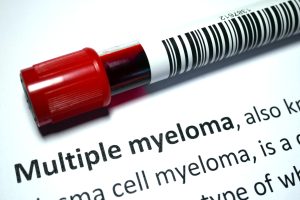
24 RCCA Physicians Named to 2025 Castle Connolly ‘Top Doctors’ List for Exceptional Cancer Care
A cancer diagnosis can be frightening. An individual may worry about how, or if, they will get better. The future becomes unclear and the strain
HIPAA Alert: Potential Data Breach Learn More
Questions on Oncology, Hematology and/or Infusion Clinical Services due to COVID-19 Crisis – CALL 833-698-1623
Important Information for Our Patients Regarding the Coronavirus.
RCCA Providing Area Cancer Patients with Access to Care During Coronavirus Outbreak
RCCA Offering Patients Virtual Visits During Coronavirus Pandemic
Bladder cancer originates in the organ responsible for storing urine – the bladder – and the cancer may also be found in other areas of the urinary tract. The disease is further classified into different types of bladder cancer, all of which Regional Cancer Care Associates diagnoses and treats every day.
If you or a loved one faces a battle with bladder cancer, our expert oncologists in Connecticut, Maryland, and New Jersey are standing by to provide an accurate diagnosis and personalized treatment plan so you can achieve the best possible outcome.
Bladder cancer originates in the organ responsible for storing urine – the bladder – and the cancer may also be found in other areas of the urinary tract. The disease is further classified into different types of bladder cancer, all of which Regional Cancer Care Associates diagnoses and treats every day.
If you or a loved one faces a battle with bladder cancer, our expert oncologists in Connecticut, Maryland, and New Jersey are standing by to provide an accurate diagnosis and personalized treatment plan so you can achieve the best possible outcome.
For many patients, bladder cancer develops with symptoms like bloody urine, pain while urinating, discomfort in the pelvic region, and more. Some patients, however, don’t notice any signs or symptoms until the disease progresses. But the types of bladder cancer are not named for their symptoms – rather, they are categorized by the location in which they develop, including:
Urothelial carcinoma
This type, formerly known as transitional cell carcinoma, is the most common form of bladder cancer in America. It originates in the urothelial cells, located in the inside lining of the bladder, ureters, and urethra. These cells contract when the bladder is empty and expand when it’s full, and when cancer is present, they divide rapidly and form tumors.
Squamous cell carcinoma
Though rare in the United States, squamous cell carcinoma is commonly found in patients who have experienced chronic irritation of the bladder. This may come after frequent urinary tract infections, long-term urinary catheter use, or bladder infections caused by schistosomiasis, a type of parasitic infection.
Adenocarcinoma
Also rare in the U.S., this type of bladder cancer originates in glandular (secretory) cells found in the bladder’s mucus-secreting glands. These cells are also found elsewhere in the body, including the breast, lung, prostate, and colon.
Sarcoma
This form of cancer develops in the bladder’s layers of muscle or fat. Although it’s among the least common types of bladder cancer, about one-third of patients who have it discover the cancer in its advanced (and more difficult-to-treat) stages.
Small cell
Small cell bladder cancer is rare, but it’s likely to metastasize (spread to other areas). It’s also more likely than other bladder cancer types to be diagnosed at a later stage.

Beyond the cell type and location, bladder cancer is further classified in three ways based on the extent of its invasiveness:
Bladder cancer is also categorized using stages and grades based on the cancer’s severity and where and how far the disease has progressed. Cancer stages range from 0 (confined to the site of origin) through IV (spread beyond the bladder). Bladder tumors are also categorized as low-grade (tumors that grow more slowly and are less likely to spread) and high-grade (tumors that typically grow and spread more aggressively).
Accurate diagnosis is the only way to ensure you or your loved one receives a treatment plan tailored to the specific bladder cancer type, stage, and grade. If you live in Connecticut, Maryland, or New Jersey, trust Regional Cancer Care Associates to correctly identify your bladder cancer and help you recover. To learn more or to make an appointment, contact us today.

A cancer diagnosis can be frightening. An individual may worry about how, or if, they will get better. The future becomes unclear and the strain

Multiple myeloma (MM) is a rare type of blood cancer that often develops without early symptoms, making awareness of risk factors essential. Regional Cancer Care

A cancer diagnosis can bring a wide range of emotions, from fear and stress to sadness and hope. These feelings are a natural part of

Regional Cancer Care Associates is one of fewer than 200 medical practices in the country selected to participate in the Oncology Care Model (OCM); a recent Medicare initiative aimed at improving care coordination and access to and quality of care for Medicare beneficiaries undergoing chemotherapy treatment.